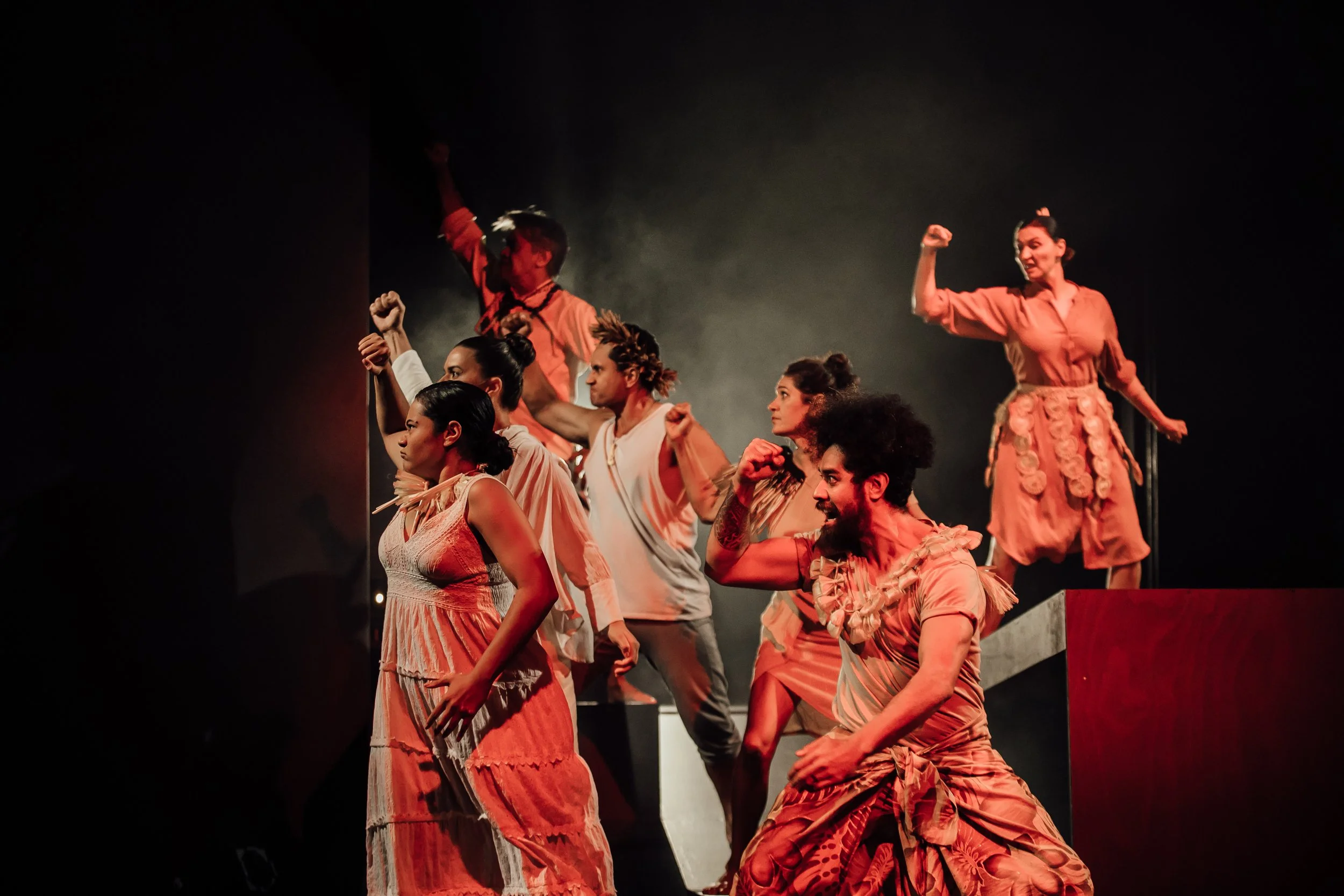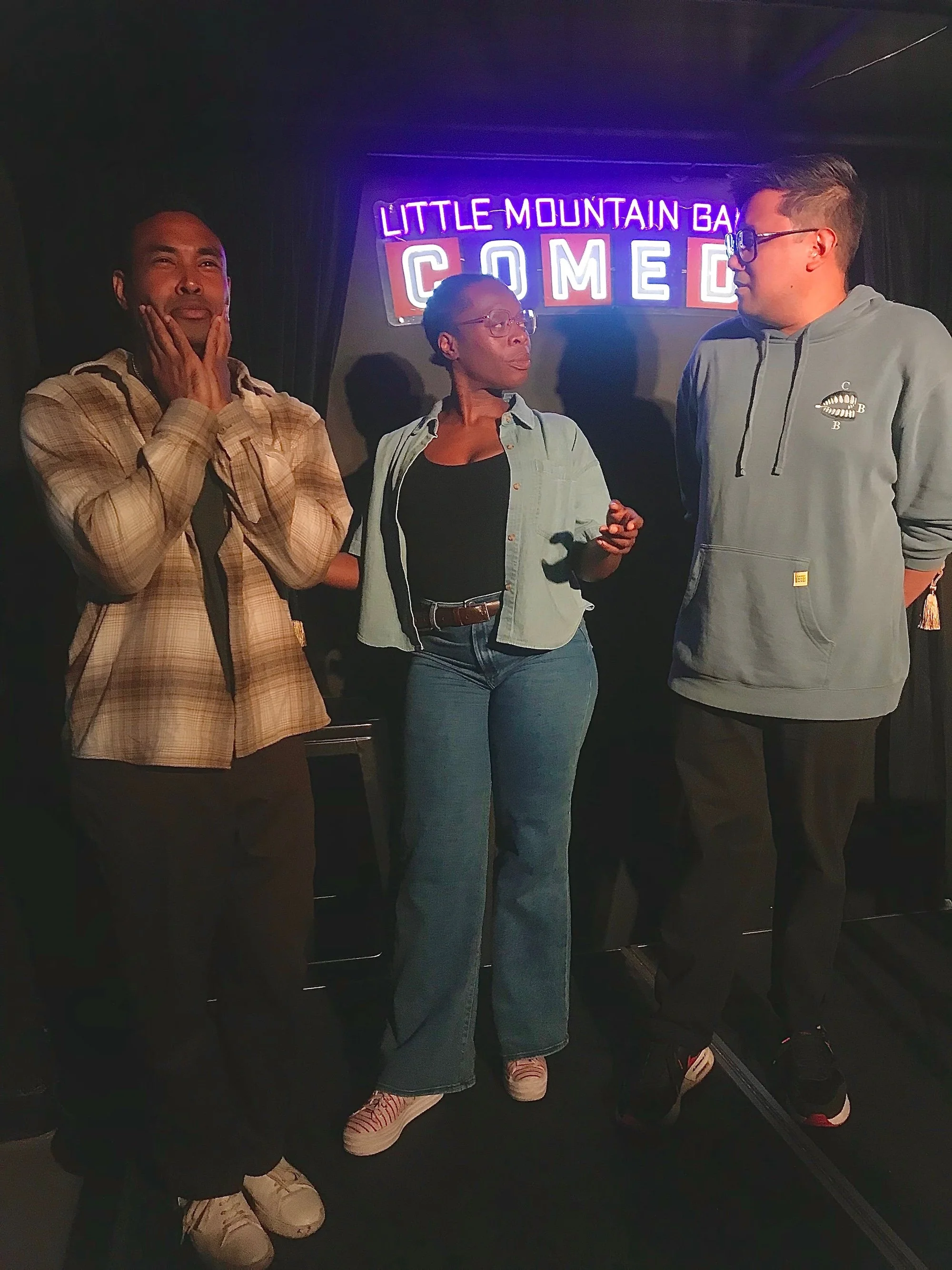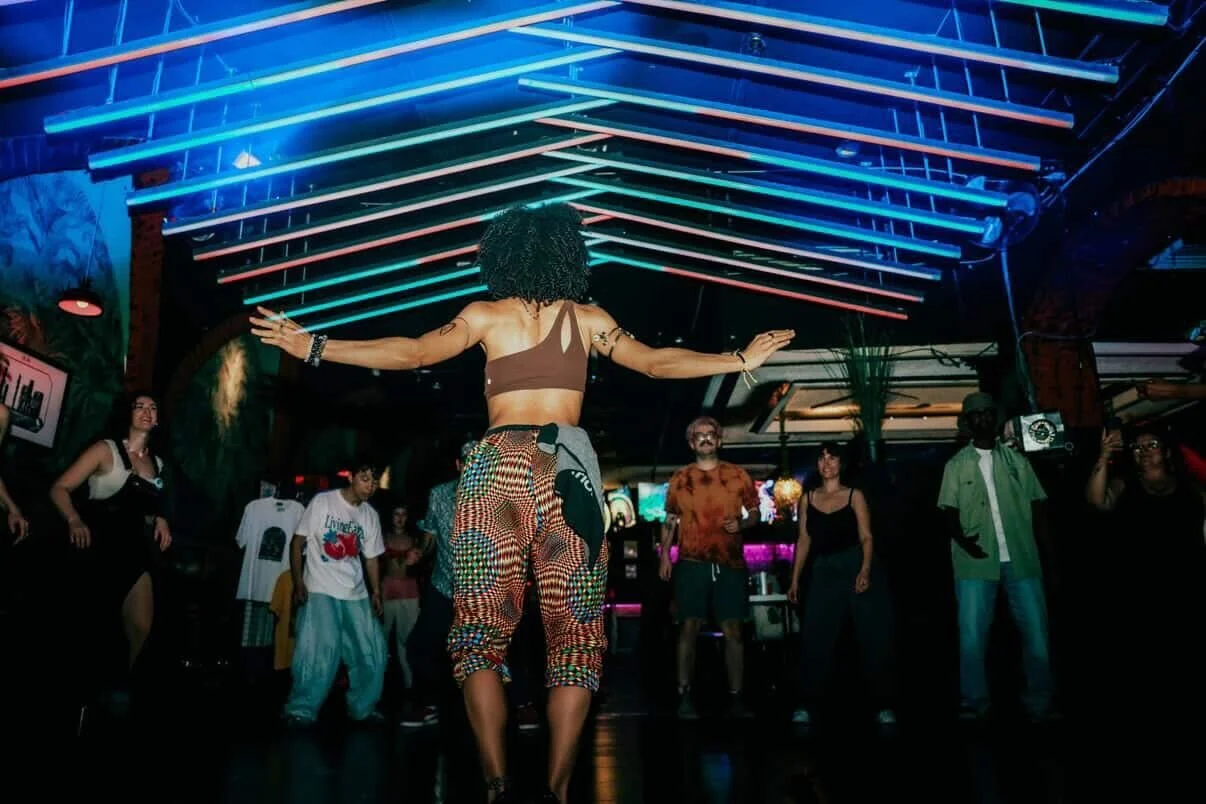In Conversation with Barbara Chirinos
/When Barbara Chirinos first saw Julie Dash’s film Daughters of the Dust at the Manhatten Film Forum in 1991, she was blown away. Not only was she captivated by its lush cinematography and keen aesthetic, but by the fact that it was written, directed and produced by an African-American woman—the first film by a black female director to receive a theatrical release in the United States.
Film still from Dash's Daughters of the Dust
Speaking at the Vancity theatre last Wednesday evening before Daughters of the Dust kicked off VIFF’s annual Black History Month program, Chirinos recalled walking into the premiere in New York and being amazed by all the people who surrounded her—women, men and children, in all their lock-haired, African-jewellery-bedecked finery. She has been lobbying to have the film shown in Vancouver; twenty-six years after its initial release, she has succeeded.
Daughters of the Dust is a beautiful film. Set in 1902, it recounts the story of a multi-generational Gullah family—the African-American descendants of some of the first West African slaves—confronting the turn of the century in their traditional homesteading community on the Sea Islands off the coast of South Carolina and Georgia.
Haunted by dream-like imagery of the South—resplendent with its ancient oak and willow trees and steamy swamps—Daughters of the Dust was recently given a resurrection in Beyonce’s visual album “Lemonade”. Central to the film’s narrative is a powerful, strong-willed group of women—granddaughters, cousins, daughters, a matriarch—straddling the precipice between the old ways and the new: a past steeped in folklore and tradition, and a future filled with the promise of modernity. It is also a tale of migration, as Chirinos noted on Wednesday: the story of a family on the brink of an exodus, representing a vital piece of African-diaspora and African-American history.
Chirinos is an immigrant herself, having relocated from New York over a decade ago; a filmmaker, she has built an impressive career in Vancouver’s arts and culture world, with senior positions at the Vancouver Folk Music Festival and VIFF, among others. She is now the Executive Director of the Granville Island Cultural Society, where she has spearheaded several important projects, most recently the Day of the Dead art festival and walking tour which launched in 2015. Chirinos has been curating the Black History Month film series since 2011, and she took a moment to answer some of my questions about this year’s program, screening at the Vancity Theatre through February.
Paloma Pacheco: Could you tell me a little bit about the background to your involvement in the Black History Month programming at Vancity, and its particular social and cultural relevance to a city like Vancouver?
Barbara Chirinos: I was fortunate enough to be a member of the VIFF staff as the Manager of Slovak House for the 2010 Olympics, and Special Events and Facility Manager for the Vancity Theatre from 2009 to 2013. In 2011, I told Alan Franey [VIFF’s Director of Programming] that I wanted to create a Black History Month film series and he gave me the go-ahead. With Alan’s blessings, Tom Charity [Vancity Theatre’s chief programmer] and I set off searching for films. The program has been an annual event ever since.
I was raised in New York City, in a neighbourhood in Brooklyn that was very, very diverse. When you walked down the streets, whether you were in your own specific community or not, you would see all different kinds of people—Asian, Latino, black, white; it was not a big thing to see someone who looked different than you. It was interesting to then come to Vancouver and not really see that. As a black person walking down the street, I got looked at many times, as if it was something that people weren’t really used to. It’s strange to move somewhere and to not see people that look like you or that have the same experience as you, and to always feel as if you are other. And it’s interesting to compare Vancouver to other cities in Canada. Montreal feels very much like New York; Toronto is also very similar to New York. It’s interesting that Vancouver, which is a very Canadian city, doesn’t seem to—although there are lots of different communities here—have a centre for the black community,
Vancouver can be quite welcoming, but at the same time there’s always that issue of feeling different and some people treating you that way. I find that what helps are the many events—not just Black History Month—that take place in the city, and which are generated by specific communities—Taiwanese, Filipino, Latin American. They are sharing stories about their past and their history, and people come to learn from the people who have actually created these stories. It helps a great deal, and it generates quite a lot of conversation after.
As I always say: “Black history is world history”. We are all citizens of the same planet; we all make contributions, and contributions to advance our whole society, not just our own specific racial society. It is something that helps all of us. It’s just that unfortunately a number of the contributions from people who are not Caucasian are not necessarily as celebrated or as known as those from the Caucasian community.
PP: There are some great films in this year’s program. How did you go about choosing which ones made the cut, and are there any in particular that you would like to highlight?
BC: Thank you; I’m psyched about this year’s program. We look for films that speak to the moment, films that are classic, historic and exceptional. Also, due to the wide availability of films from the US, Europe, and Africa, I try to search for films that don’t play in Vancouver, or have short runs.
And of course, we’re always on the hunt for films with strong Canadian content. Four of the films met these criteria: Julie Dash’s, Daughters of the Dust, An American Ascent, Raoul Peck’s, I Am Not Your Negro, and Kwame Mason’s Soul on Ice. Soul on Ice is truly a Canadian film. Written, produced and directed by Canadian filmmaker Kwame Damon Mason, Soul On Ice acknowledges black professional hockey players and young athletes that are as devoted to the sport as any Canadians. The Vancouver Canucks and the NHL are the sponsors for this free screening.
American Ascent takes us to Alaska’s Mt. Denali, summitted by nine African-American mountaineers. The cinematography is truly breathtaking. Who says black people don’t appreciate outdoor sports?
We then have the exclusive Vancouver premiere of Raoul Peck’s Oscar-nominated film I Am Not Your Negro. It is an important documentary that speaks to today, featuring the prophetic words of heralded author James Baldwin, who died over 30 years ago.
PP: The film program at the Vancity is part of a wider celebration of Black History Month in Vancouver. Are there any other events that you are particularly looking forward to?
BC: We [The Granville Island Cultural Society] are putting on an event called Afro Hair Savoir Faire on Sunday, February 19th at 1:00. It’s a free event and people can send an RSVP to rsvp@giculturalsociety.org to register for tickets.
We sold out last year—or we were at full capacity—and I’m anticipating that it’s going to happen again this year. We start out with a documentary called In Our Heads About Our Hair; we get a chance to watch the film, and then we introduce the local estheticians—or, as I call them, “beauty makers”—that work with all different types of hair. People get a chance to do a Q&A on the film as well as speak to the beauty-makers—to talk to them about any challenges they may have with their hair, and to find out about different resources in the Vancouver area. After the Q&A there will be demonstrations on how these beauty-makers style hair. They’ll be working with locks, there will be braiders there, there will be barbers that will do fades and different designs in hair, and then there will be someone there that can show women the easiest way to do a blow-out.
It was so joyful last year. What I try to do with all Black History events is to promote them in the broader community. It is very important for the black community to show up because we need to be reminded of what we’ve accomplished, to recognize all of the people that have made contributions, to see people who look like us and to be reminded: We are worthy, we are fantastic, and we contribute to society. But it’s also inclusive, so that everyone gets a chance to see it.
More info + tickets for Vancity Theatre's Black History Month program can be found here.






